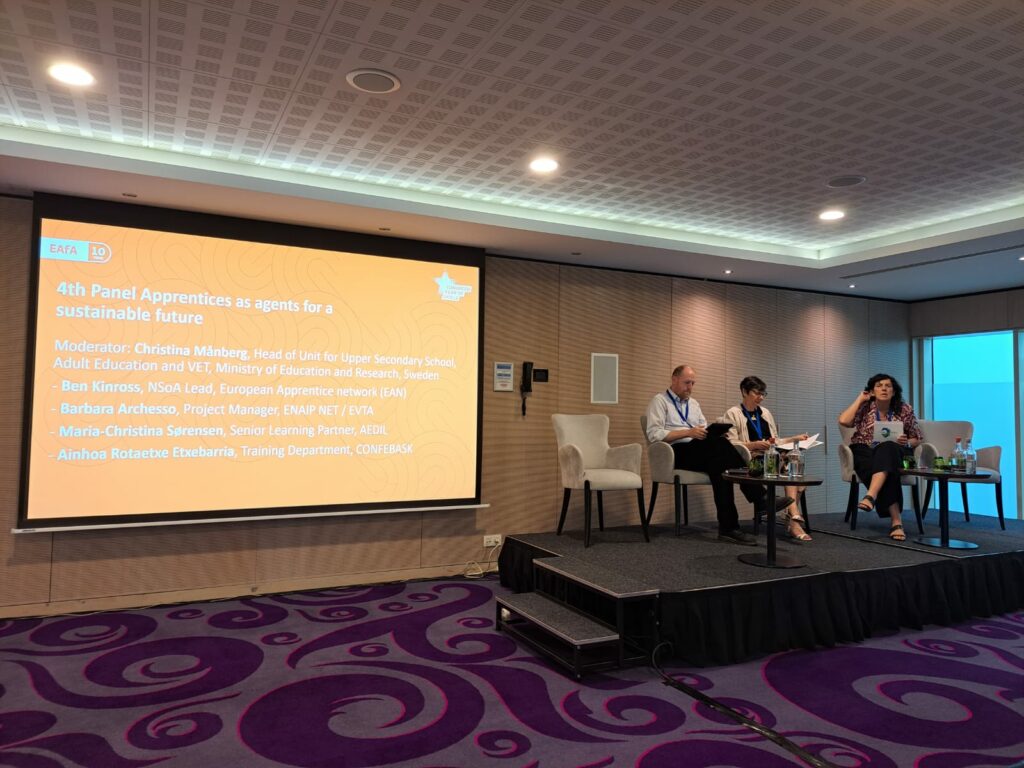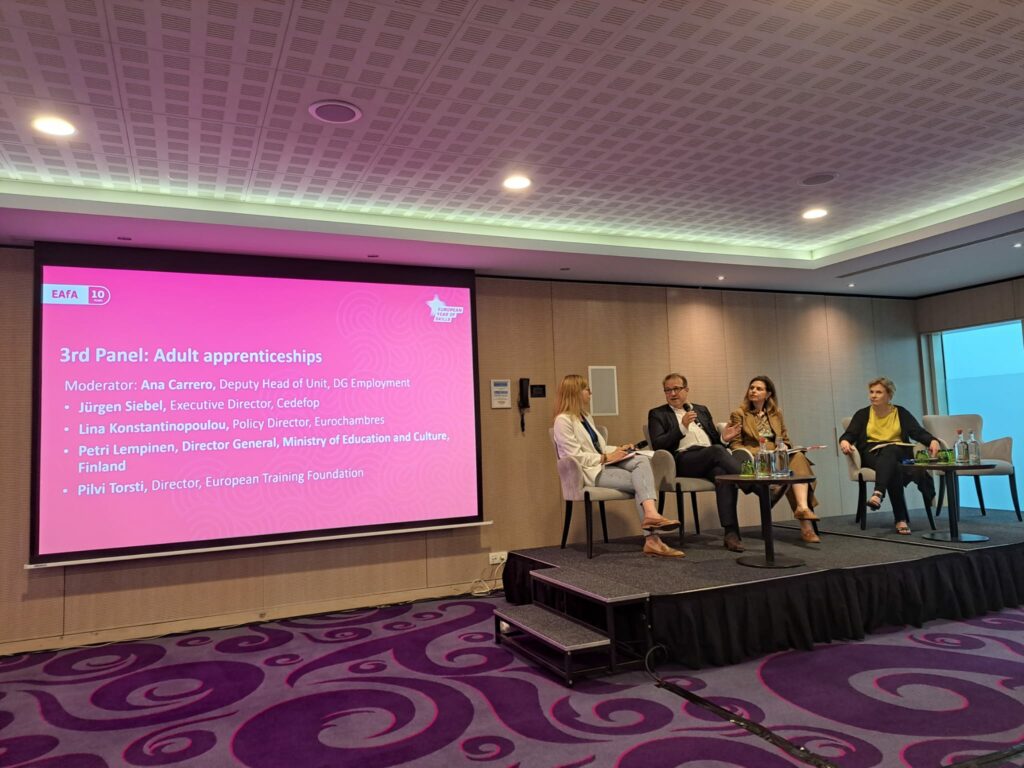EARLALL joins the European Alliance for Apprenticeships (EAfA) in celebrating its 10th Anniversary!
04/07/2023

EAfA High Level and Get together Events, 26 and 27 June 2023, Brussels and online.
On 26 and 27 June 2023, the EAfA members and organisations interested in apprenticeship schemes gathered in Brussels to celebrate the 10th anniversary of the Alliance and the 5th anniversary of the European Framework for Quality and Effective Apprenticeships. It was a great occasion to take stock of recent developments in the participation of adults and apprentices as agents of change in the twin transition, mobility and social inclusion, among other topics.
Participants were welcomed by the Director General of the European Commission’s Directorate-General of Employment, Social Affairs and Inclusion, Joost Korte, who reminded participants that the situation in Europe when the EAfA was launched was much more severe, with a higher unemployment rate. While today unemployment is only at 6%, we are still facing many challenges like labour shortages and skills mismatches. Youth unemployment is high (12%) and we are confronted with a global race for talent to overcome these labour disparities.
VET and apprenticeships play a key role in providing skills that are needed by Europe’s businesses and recent figures show that Europe has managed to reach 60% of VET students in work-based learning programmes. The 2018 Council recommendation on Quality and Effective Apprenticeships is more than ever a reference for member states as it sets better working conditions and is in line with the European Pillar of Social Rights. The event continued by welcoming 20 new members and renewing pledges to the Alliance, before the four panel discussions.
From the two days, one of the most significant take-away messages was that there is still work to do to improve the 2018 Recommendation’s seven framework conditions (involvement of social partners, flexible pathways, mobility, etc.) while the learning and working conditions are well enacted. Participants also welcomed the International Labour Organisation’s (ILO)recently published Recommendation concerning quality apprenticeships. It tackles parallel issues to the European framework when it comes to ensuring quality, and defending appropriate salaries and accreditation, for example, but proposes more detailed aspects such as protection measures and promoting equality and social inclusion, given the variety of global contexts that it needs to cover. Apprenticeships were also showcased as a tool for promoting upskilling and reskilling and as a more attractive way for adults to learn.
As a way forward, and in terms of apprenticeship governance, the main conclusions stressed the importance of sectoral collective bargaining and the need for public authorities to appoint or set up a body that gathers stakeholders and uses consultations and other measures to provide sustainable financing models and support to SMEs. Flexibility in the delivery is also needed to attract a new cohort of apprentices.
The recognition of the important role that the regional level has was highlighted by the representatives from the European Commission in several interventions. The Pact for Skills and EAfA are both part of the Skills Agenda and have created many synergies to support their members to find relevant answers to their skills challenges.
During the Get-Together session, Noelia Cantero, EARLALL Director, was invited to report to the plenary about the main messages drawn from the panels and to present the upcoming EAfA community of interest dealing with ‘The role of regions and cities for apprenticeships’ that the association will coordinate and that will start its activities in autumn 2023. Participation in the discussions is open to all EAfA members who are interested in exchanging information and practices regarding apprenticeships.
EARLALL has been an active member of the Alliance since 2015. Apart from having reviewed its pledge and having contributed to many webinars and events with speakers from the regional contexts, the organisation is a member of the Apprenticeship Support Services and meets the European Commission regularly to provide best practice examples of apprenticeships from its member regions.





